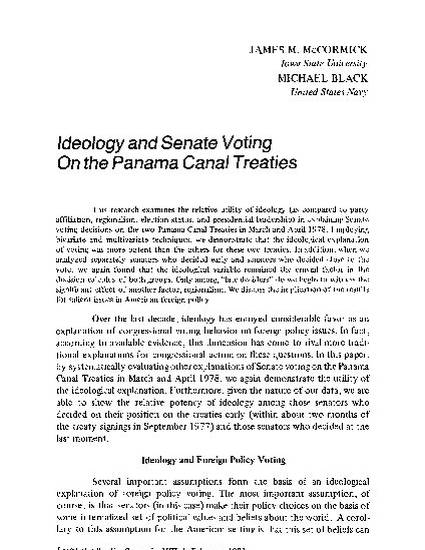
This research examines the relative utility of ideology (as compared to party affiliation, regionalism, election status, and presidential leadership) in explaining Senate voting decisions on the two Panama Canal Treaties in March and April 1978. Employing bivariate and multivariate techniques, we demonstrate that the ideological explanation of voting was more potent than the others for these two treaties. In addition, when we analyzed separately senators who decided early and senators who decided close to the vote, we again found that the ideological variable remained the crucial factor in the decision calculus of both groups. Only among "late deciders" do we begin to witness the significant effect of another factor, regionalism. We discuss the implication of the results for salient issues in American foreign policy.
Available at: http://works.bepress.com/james-mccormick/20/

This article is published as McCormick, James M., and Michael Black. "Ideology and Senate Voting on the Panama Canal Treaties." Legislative Studies Quarterly (1983): 45-63. DOI: 10.2307/439470.